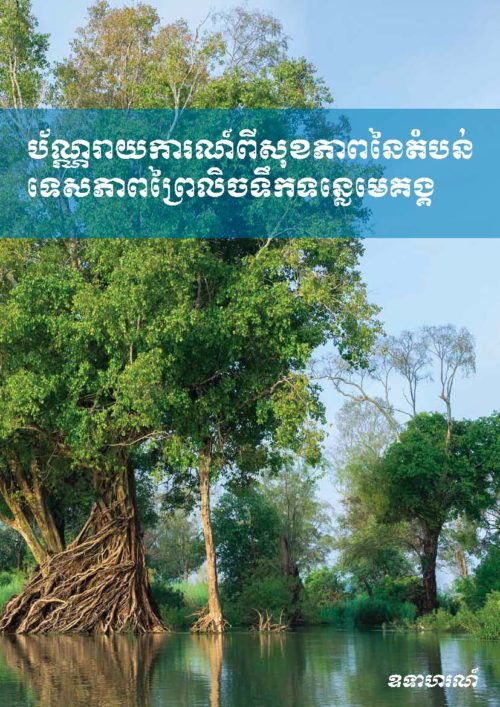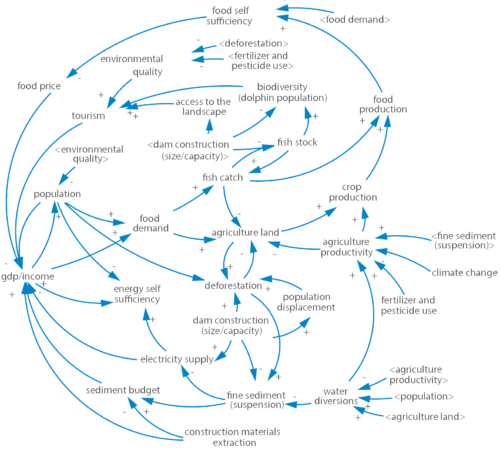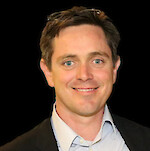Mekong Flooded Forest – a sneak peek at a Future Card
Simon Costanzo · | Environmental Report Cards | Science Communication | Applying Science |Future Card: a report card that forecasts future ecosystem health grades based on alternate management strategies. The holy grail right? Well hopefully. This idea of a “future card” began 18 months ago while I was attending a meeting held by the Luc Hoffman Institute in Phnom Penh, Cambodia, for the LIVES’s project (Linked Indicators for Vital Ecosystem Services). It was there that I met Dr. Andrea Bassi and saw first-hand the work he was doing on System Dynamics Modelling for the Mekong Flooded Forest Landscape (MFF). His model was designed to represent, and estimate the main drivers of change to food, energy, and water in the Mekong Flooded Forest Landscape in response to regional development options at a landscape level. Much like a finely made Swiss watch, the mechanics operate in the background, whereas the face is in the form of a causal-loop diagram (CLD) that is built from the ground up through a stakeholder consultation process .

A lot of what is captured by this CLD reflects the types of values, threats, and indicators that one would commonly see in our existing report cards. That is what first got my attention. Report cards are very good at synthesizing large amounts of information and providing a succinct summary of how a system is now. With time, report cards are also very effective at showing trends, however, we are still faced with all our information being retrospective. What we need is the capacity to look forward and identify what path will lead to the most successful outcomes….and I believe we may have stumbled across such an approach with the use of system dynamics modelling.

Fortunately, at that time point, LIVES had an almost-baked system dynamics model in the oven for the MFF. This gave us a significant head-start and together a “concept” future card was developed which was presented to the stakeholders on my recent trip to Cambodia in July 2016, which also coincided with the wrap-up of Phase 1 of LIVES. The idea certainly has people talking and there is enthusiasm to fully develop the concept for the MFF in Phase II of the LIVES project.
About the author
Simon Costanzo

Dr. Simon Costanzo is a Science Integrator at the University of Maryland Center for Environmental Science in Cambridge MD. Simon’s career in environmental science over the past 20 years has been focused on developing and improving methods for the assessment, monitoring and management of aquatic, marine and terrestrial ecosystems. Simon has extensive experience in scientific data collection, synthesis, interpretation and communication. Simon’s career has provided a unique insight to a wide range of disciplines and stakeholder groups including government, academia and private industry. Dr. Costanzo obtained his academic training from University of Queensland in Australia (PhD).